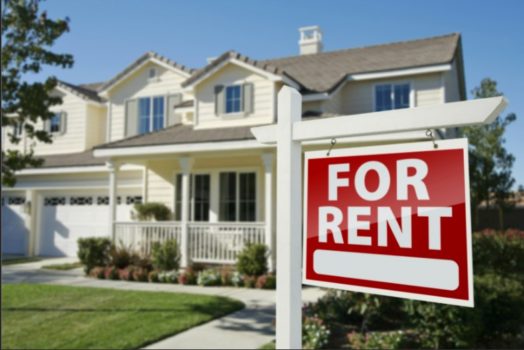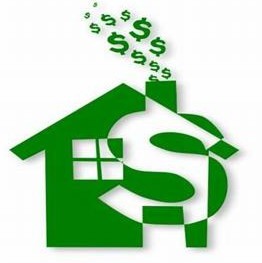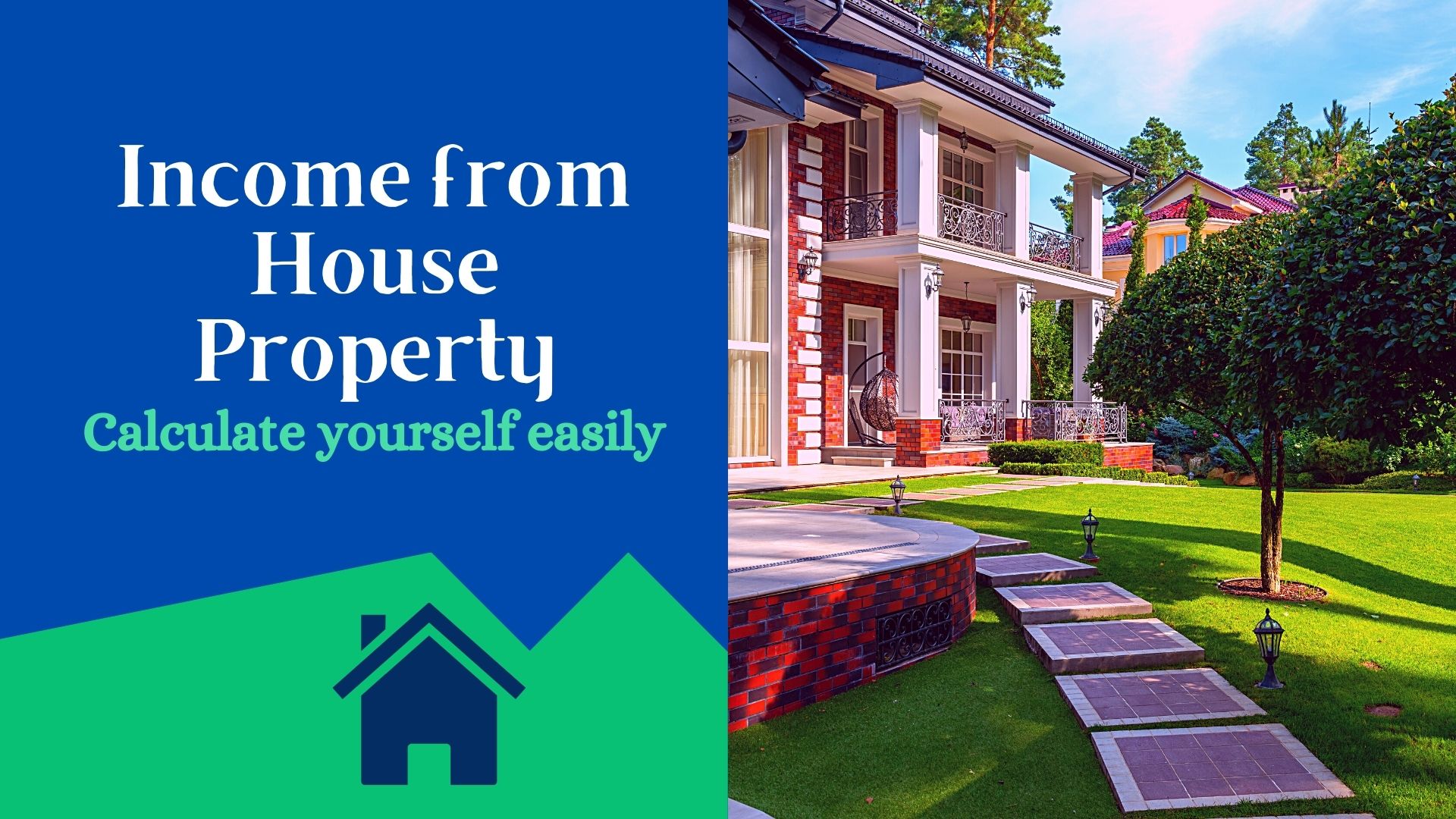It is bliss to have a roof above your head, and share experiences of life, ups, and downs with your dear ones. House is where you live, you create your own small world aloof from the world. House property has made house owners millionaires due to a sharp spike in house property prices with the passage of time. As a house owner, you have the option to live in your own house with your family or to earn income from your house property by renting it to others. In either way, you benefit and earn income from your house property. House is an asset that holds great value not only for you but for your children.
Table of Contents
What is Income from house property?
What if the owner of the house does not stay in the house owned by him?
In that case, he might rent that house to a tenant (individual or organization). He may charge rent as fees from the tenant for staying in that house and using his house property. Income from house property includes this rent charged by the owner from the tenant. Let us understand how Income Tax treats it.
Income from house property is termed as the Annual value of house property under Income Tax. The Annual value of property consists of any building or lands owned by the owner (Assessee). The income or profits accruing from those should be mentioned under the head of “Income from House Property” under Income Tax.
According to Chapter 4, Section 22 – 27 of Income Tax Act, 1961 there is a provision of income under the head of house property. In every section from 22-27, there is a detailed specification of house property income. It is defined as income earned by a person through his house or land. The term ‘buildings’ includes any building (whether occupied or intended for self-occupation), office building, godown, storehouse, warehouse, factory, halls, shops, stalls, platforms, cinema halls, auditorium, etc. Income arising out of the building or a part of the building is covered under this section. Land appurtenant includes land adjoining to or forming a part of the building. It would depend on the nature of the land, whether it is appurtenant to the residential building, factory building, hotel building, clubhouse, theatre, etc. It will also include courtyards, compounds, garages, car parking spaces, cattle shed, stable, drying grounds, playgrounds.

What happens if the house is used for business purposes?
If the property owned by the house owner is used by him to carry on a business or a profession. Then in such a case, the income from house property is not taxed under Income from house property. In fact Income from such business or profession is chargeable to tax.
Similarly, when a firm carries on business or profession in a building owned by a partner, no income from such property is added to the income of the partner, unless the firm pays the partner any rent for the same. However, if the house owner (Assessee) is not the owner of the building but is a lessee and he sublets or leases the property, he would be taxed under the head ‘Income from other sources. If a company is formed for the sole object of acquiring and letting out immovable properties, the rental income would be taxable as “Income from house property” and not as “Business income. “The income from letting out shops would be considered as income from house property.
Will Income from vacant land be treated as Income from house property?
Vacant land which is owned by the owner means land with no construction at all. The same land should not be attached to the owner’s own house else it may be termed as land appurtenant. If the vacant land as defined by the owner satisfied all the conditions, then income earned by the owner by renting that land to a tenant or leasing it for a specified time, or renting it for a particular occasion will not be taxed under Income from house property rather it will be taxed under Income from other sources. Even rent, arising out of open spaces, or quarry rent, is taxed as income from other sources.
When is Income from house property exempted from Income tax?
What a relief it is when you do not have to pay tax on your house property. A tax exemption on income from house property of any kind will bring a smile to the owner’s face. If you fall under any of the below-mentioned criteria’s then your income from house property will be completely exempted from Income Tax.
- Income from any farmhouse forms part of agricultural income;
- Property Income of a local authority;
- Property Income of an authority constituted for the purpose of dealing with and satisfying the need for housing accommodation. If it is for the purposes of planning development or improvement of cities, towns, and villages or for both. (The Finance Act, 2002, w.e.f. 1.4.2003 shall delete this provision);
- Property income of any registered trade union;
- Property income of a member of a Scheduled Tribe;
- Property income of a corporation, established by the Central Government or any State Government for promoting the interests of members of a minority group;
- Property income of a cooperative society, formed for promoting the interests of the members either of the Scheduled Castes or Scheduled tribes or both;
- Property Income, derived from the renting of godowns or warehouses for storage, processing, or facilitating the marketing of commodities by an authority constituted under any law for the marketing of commodities;
- Property income of an institution for the development of Khadi and Village Industries;’
- Self-occupied house property of the house owner (Assessee), which has not been rented throughout the previous year;
- Income from house property held for any charitable purposes;
- Property Income of any political party.

What is the Annual Value of house property?
The annual value of a house property is generally taken to be the notional (estimated) rent or actual rent. For Income Tax purposes identifying the Income from the house, property involves computation of the Annual Value of the house property. On the basis of this Annual value, the Income from house property will be taxed under Income Tax.
Self- Occupied house property
What if the owner of the house property stays in the house without renting it? Does he still have to pay tax on income from house property based on estimated rent in the market?
The answer is NO. The Annual Value of a self-occupied house is taken as NIL (no cost) provided the below conditions are satisfied.
- The house is in occupation of the owner for the purpose of his own residence or his residence with his family.
- Such house or part thereof is not let out during the previous year to any tenant or to anyone else for any purpose.
What if the house owner does not live in his owned house but it is vacant?
House remaining vacant for self-occupancy
Where a house remains vacant for self-occupancy, the annual value of one such house is also taken as NIL (no cost) provided the below conditions are satisfied.
- The house cannot be used for the purpose of his own residence because of his employment or business or profession.
- Such house or part thereof is not let out during the previous year.
- The owner did not receive any monetary benefit from it.
Example- Mr.N owns a house which he occupies for his own residence. Its municipal value is 100000/- but the fair rent is expected to be 150000/-. Standard rent as per the rent control act is 80000/-. He has paid 8000/- towards municipal taxes. Determine the annual value.
The annual value of the self-occupied house :
Gross Annual Value ——— nil
Less: Municipal taxes paid ——- nil
Net annual value —— nil
Since the house in self-occupancy is an independent unit then the annual value of that portion is NIL (zero).
Calculation of Annual value of a rented house
When the owner rents out his house then the income accruing to him is termed as Income from house property. You need to compute the Annual Value of the property after taking into account the below components.
Expected Rent:
Municipal value determined by the local authority for charging house tax etc or Fair rent (rent of similar property in the same locality) whichever is higher.
Standard Rent:
Where standard rent (Under rent Control Act of a State) is fixed, the expected rent can not be more than the standard rent.
The annual value of house property =
Municipal value or Standard rent or fair rent whichever is less Or Actual Rent Received whichever is greater.
Deductions from Annual Value:
- A sum equal to 30% of annual values standard deduction for expenses (except interest)
- Interest on loans taken for the purpose of purchasing, constructing, reconstructing, or repairing the house property is allowable as a deduction on an accrual basis.
FunFact:
A total of Rs5 lakhs can be claimed as a tax rebate for those who are buying a house for the first time.
Let us know your thoughts about tax on house property?

